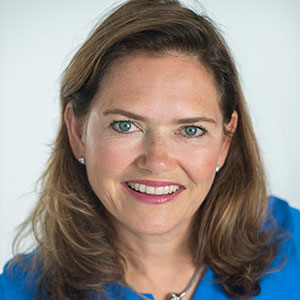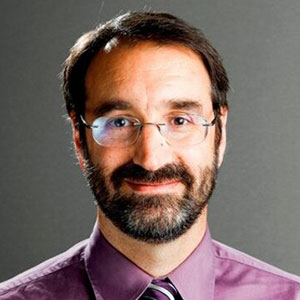Session Abstract – PMWC 2017 Silicon Valley
Session Synopsis: Enabling the oncology community to harness the power of clinical data and electronic health care records to improve standard care requires data sharing, aggregation, and harmonization of research-grade datasets, including a supportive infrastructure. This session focuses on novel partnerships and high performance computing, that enable clinical workflow acceleration and decision making for precision medicine.
Session Chair Profile
M.D., Ph.D., Chief Medical Officer and Chief Scientific Officer of Flatiron Health
Biography
Amy P. Abernethy, MD PhD is the Chief Medical Officer and Chief Scientific Officer at Flatiron Health, a healthcare technology company focused on organizing the world’s cancer data and making it actionable for providers, patients, researchers and life sciences. At Flatiron, Dr. Abernethy leads the Oncology and Science parts of the organization. She is a hematologist/oncologist and palliative medicine physician, and internationally recognized cancer clinical researcher with over 400 publications. Dr. Abernethy is an appointee to the National Academy of Medicine’s (formerly the Institute of Medicine) National Cancer Policy Forum, on the Executive Board for the Personalized Medicine Coalition, and Past President of the American Academy of Hospice & Palliative Medicine. Before joining Flatiron, Dr. Abernethy was Professor of Medicine at Duke University School of Medicine, and ran the Center for Learning Health Care in the Duke Clinical Research Institute and Duke Cancer Care Research Program in the Duke Cancer Institute. She is also on the Board of Directors of athenahealth, Inc.
Speaker Profile
M.D., Professor of Medicine and the Co-Director of the Robert Wood Johnson Foundation Clinical Scholars Program, Yale University
Biography
Dr. Gross is Professor of Medicine and the Co-Director of the Robert Wood Johnson Foundation Clinical Scholars Program at Yale. As Director of the Cancer Outcomes Public Policy and Effectiveness Research (COPPER) Center at Yale, the over-arching theme of his work is the disconnect between evidence generated from clinical research and the actual needs of older persons with cancer. He uses comparative effectiveness studies and policy-relevant research to address this important knowledge gap. As a general internist, Dr. Gross and his colleagues have used state of the art techniques to shed new insights about cancer screening, risk stratification, and treatment. Ongoing investigations focus on the understanding variability and value in cancer care, with a focus on the complex interplay between health policy, clinical decision-making, and patient centered outcomes. He also has a long-standing interest in research ethics and integrity. The resulting findings have been published in high impact journals including JAMA, Annals of Internal Medicine, and the Journal of the National Cancer Institute.
Talk
Early Insights from an Academic-Industry Collaboration
True collaboration between industry and academia can impose challenges, which if addressed successfully can unlock creativity, accelerate the pace of discovery, and ensure objective, rigorous science. This talk will describe a novel partnership between industry and an academic institution, including two ongoing exemplar precision medicine studies made possible through real-world datasets.
Speaker Profile
Ph.D., Chief of Bioinformatics, ASCO CancerLinQ
Biography
George Komatsoulis is the Chief of Bioinformatics at CancerLinQ, a rapid learning healthcare program at the American Society of Clinical Oncology. CancerLinQ uses standard clinical care data from Electronic Health Records to create a national cohort that participating practices can use to improve outcomes for their patients. Prior to coming to CancerLinQ, Dr. Komatsoulis spent 12 years at the NIH, working at the National Cancer Institute and the National Center for Biotechnology Information. At the NIH, he spearheaded the development of innovative biomedical informatics capabilities including the NCI Cancer Genomics Cloud Pilots, the NIH Commons Credits Model and semantic technology to support interoperability. From 1997 – 2004, Dr. Komatsoulis was a bioinformatics scientist at Human Genome Sciences, Inc. after completing a PhD in Molecular Biology and Biochemistry and post-doctoral work in Biochemistry at the Johns Hopkins University School of Medicine and Mathematics at the University of Southern California.
Talk
Big Data in Cancer Care
Improving outcomes by leveraging data from regular clinical practice is the objective of what the Institute of Medicine calls a “rapid learning health system”. This talk focuses on implementing such an environment in oncology and discusses the challenges involved in doing so in a way that supports rather than burdens providers.
Speaker Profile
MS, Director of Bioinformatics Solutions, HPE
Biography
Phong is currently the Director of Bioinformatics Solutions at Hewlett-Packard Enterprise, focusing on how high performance computing is enabling personalized medicine through genomic workflow acceleration. Previously, he was the Global Marketing Lead for Life Sciences Solutions at Hewlett-Packard, focusing on high performance computing for Life Sciences research. Prior to joining HP, Phong held positions at Hewlett-Packard Enterprise Services, Los Alamos National Laboratory, and he co-founded and was Director of the North Texas Enterprise Center for Medical Technology (NTEC). Phong has spent his career working with start-up ventures from the development of a concept or idea, to securing funding, to a company’s exit. He is a proven strategist and visionary entrepreneur with over 20 years of hands-on experience in developing markets for ground breaking technologies, building interdisciplinary teams, securing strategic alliances, raising venture and private equity funding, and transforming conceptual start-ups into fully functional enterprises.
Talk
Preparing for the Next Step in Genomic Analysis
The pace and scale of genomics research is now less defined by the science itself than by the computational and storage architectures used to extract insight from the genomic data generated. This session focuses on how to enable genomic workflow acceleration through a converged compute and data management platform.
Speaker Profile
VP, Market Development, Clinical Genomics & Bioinformatics, Qiagen Bioinformatics
Biography
Sean Scott is the VP and GM, Clinical Genomics for QIAGEN. Sean is responsible for QIAGEN’s Clinical Genomics product portfolio offering serving the needs of molecular diagnostics and molecular pathology testing laboratories related to NGS-based genetic test interpretation and reporting across germline and somatic test indications. Sean recently led the development of QIAGEN new Ingenuity Clinical Decision Support platform, an instrument platform, assay and pipeline agnostic solution, that enables clinical labs to scale annotation, interpretation and reporting of their screening, diagnostic and monitoring test offerings. Sean joined QIAGEN in 2013 through QIAGEN’s acquisition of Ingenuity Systems where he, prior to QIAGEN, spent six years as SVP, Global Commercial Operations and SVP, Corporate Development for Ingenuity Systems.
Talk
Integrating NGS-based Test Results with Clinical Outcomes Data to Improve Physician Decision Support
The integration of NGS-based Oncology diagnostics testing results with patients-like-me clinical outcomes data at the point-of-care to enable genomics guided clinical decision support remains a challenge for many healthcare providers. TransMed Systems and QIAGEN provide a case study on how this challenge can be overcome with fast time-to-value and low overall total-cost-ownership in small to mid-sized cancer centers.








